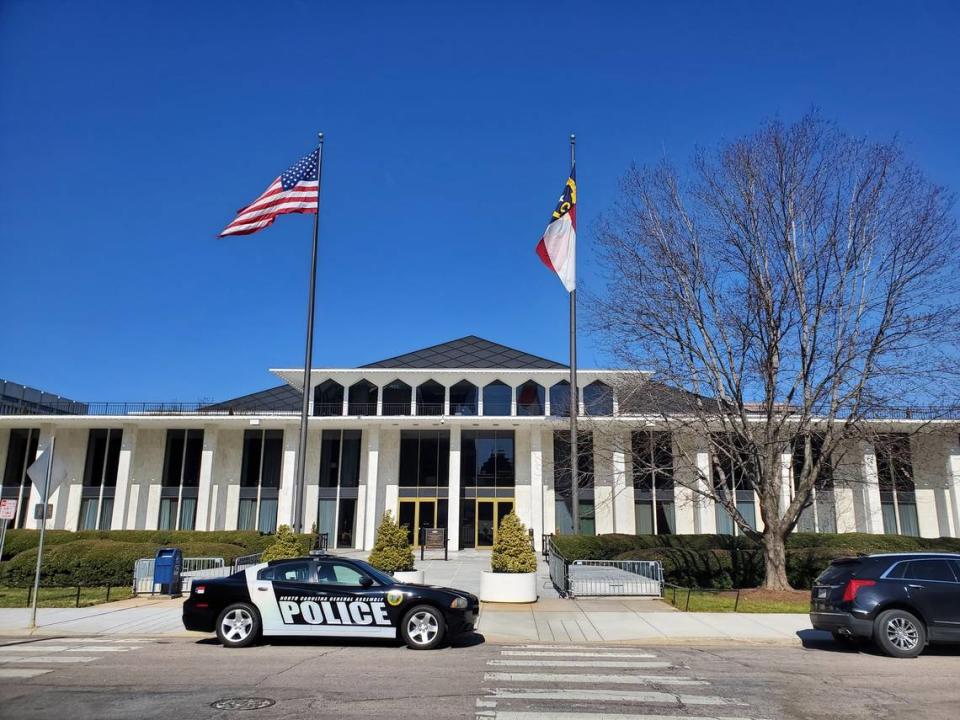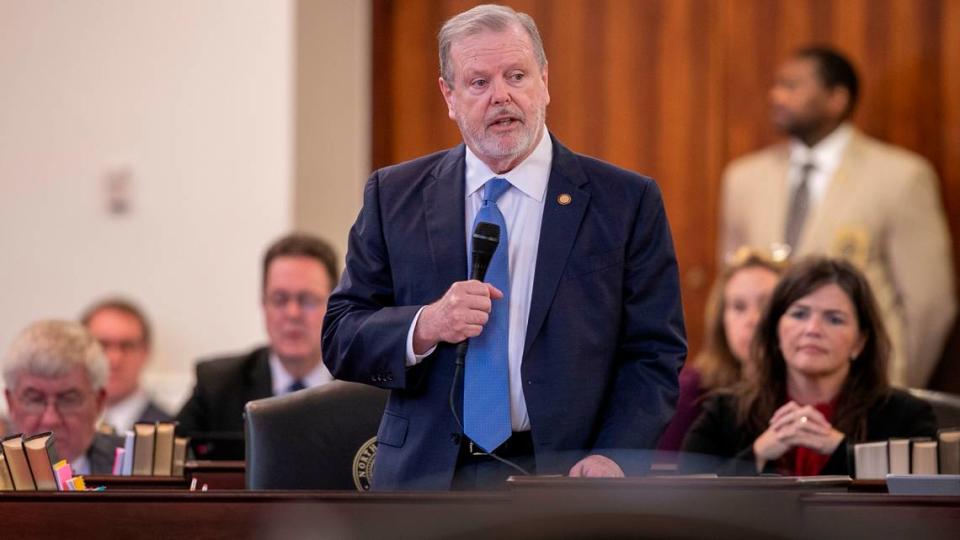Despite a bulging surplus and great need, GOP lawmakers offer NC a timid state budget
North Carolina’s top Republican state lawmakers had their abracadabra moment Tuesday evening. After prolonged backroom tinkering, they unveiled their proposed changes for the second year of the two-year state budget.
The adjusted $27.9 billion spending plan is significant for what isn’t there. It contains no new tax cuts and no plan to expand Medicaid.
Something else is also missing: imagination.
Senate leader Phil Berger could summon only faint praise for the GOP’s handiwork. He said, “This is a solid budget for the people of North Carolina.”
In extraordinary times with a huge surplus available, the Republicans have fallen back on doing something “solid” rather than ambitious, compassionate and innovative. The only appeal to this budget is that it does not cut taxes any more than already scheduled.
Republican leaders are aware that a potential recession would expose how they have let state spending whither. They’ve decided not to cut taxes further – the existing reductions are already costing the state more than $6 billion annually. Instead, they are piling up reserves to postpone the day when a sharp drop in the economy and a rise in public need will expose just how much state funding has been neglected and how the increasingly regressive tax code is inadequate to support state services.
State Sen. Dan Blue, a Wake County Democrat and the Senate minority leader, said Tuesday that the lack of new tax cuts shows that Republicans realize they’ve brought the state to the edge of not meeting its obligations. “It might be that folks are realizing if you take anything else out of the revenue stream, it’s going to be a nightmare to balance the budget,” he said.
Emerging from a pandemic and sitting on a $6 billion surplus, Republican lawmakers are offering modest pay increases for state employees and teachers, but no full acknowledgment of the gigantic issues facing the state as a result of COVID-19 and inflation. The state has serious and growing shortages of state employees, teachers and nurses. The pandemic has caused students to fall behind, inflation is hitting low-income families hardest and the lack of affordable housing is getting worse in fast-growing urban areas.
Now it appears that one major source of relief, Medicaid expansion, will not be realized this year unless there is a sudden resolution of disagreements between the House and Senate. Going another year without Medicaid expansion despite overwhelming popular support for it would be a major failure by this Republican-led legislature.
Democratic Gov. Roy Cooper called for a different approach in his proposed budget. Among other things, he wants more spending on public schools and Medicaid expansion.
In announcing his proposed budget, Cooper said, “Let’s use this historic opportunity to give families, businesses and communities the tools they need to thrive.”
The Republican budget writers didn’t respond to that message. Berger said the governor’s staff has been briefed on the Republicans’ budget, “but we have no commitment from the governor one way or the other.”
That’s one way of putting it.
The adjusted spending plan emerged from a secret process. Even its chief authors, Berger and House Speaker Tim Moore, appeared to be in suspense about its contents until recent days. Democratic state lawmakers knew only rumors. Members of the public were the last to find out.
A state budget shouldn’t appear wholly formed after a wave of approval from Berger and Moore. It should be assembled through public hearings, appeals from state agency heads, reactions from lawmakers in the minority and ample comment from the people who will pay for it, North Carolina’s taxpayers.
Alexandra Sirota, executive director of the nonprofit N.C. Budget and Tax Center, said a closed budget process excludes perspectives that would produce a more effective and responsive spending plan.
“It’s a problem, especially coming out of a pandemic,” she said. “You can’t possibly expect a small number of leaders to understand the diversity of experiences in the state. Without that input, they can’t be expected to come up with the best solutions.”
No they can’t and no they didn’t.

 Yahoo Movies
Yahoo Movies 

